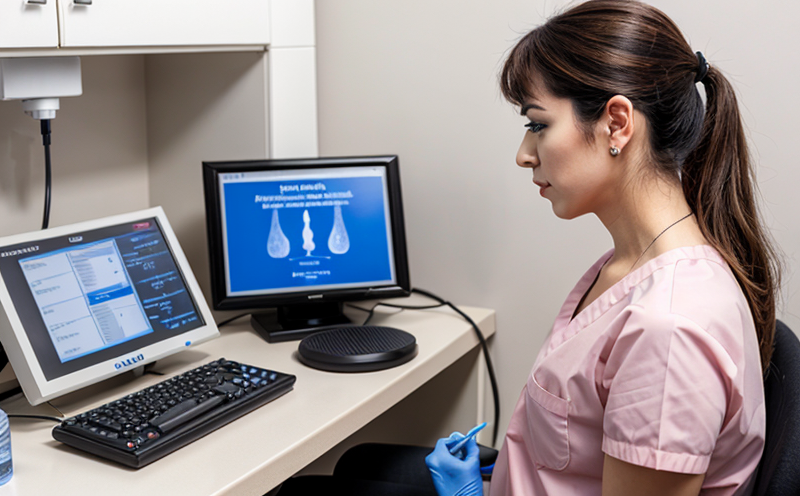Triiodothyronine (T3) Testing in Livestock Studies
The testing of Triiodothyronine (T3) is crucial for understanding thyroid function and its impact on livestock health. T3 is an important hormone that influences metabolism, growth, development, and overall physiological processes in animals.
In the context of livestock studies, accurate measurement of T3 helps researchers and quality managers to assess the nutritional status, stress levels, and health conditions of large animal populations. This data can inform dietary adjustments, breeding strategies, and herd management practices aimed at improving productivity and welfare.
Understanding thyroid function through T3 testing is vital because it provides insights into how different factors such as diet, environmental conditions, and genetic makeup affect the animals' physiology. For instance, in feed quality studies, T3 levels can indicate whether dietary changes are effective or if there are deficiencies that need addressing.
The accuracy of these tests is paramount for their utility in research and practical applications. Compliance officers rely on such data to ensure that standards set by international organizations like the World Organisation for Animal Health (OIE) are met. Additionally, R&D engineers use this information to innovate new feeding protocols or develop supplements tailored specifically for certain breeds or age groups.
It is important to note that T3 testing should be conducted under controlled conditions using validated methods such as those outlined in ISO 17025. Specimen preparation involves collecting blood samples from the animals after fasting for a specified period. Proper handling and storage of these samples are critical steps before analysis.
The laboratory equipment used for T3 testing includes specialized immunoassay kits or chromatography systems calibrated according to manufacturer guidelines. These instruments ensure precision and reliability in measuring T3 concentrations within acceptable ranges defined by scientific consensus.
By integrating results from T3 tests into ongoing studies, scientists can make informed decisions about interventions needed to maintain optimal health among livestock populations. This approach supports sustainable practices that enhance animal well-being while also contributing positively towards broader environmental goals related to food production and resource use efficiency.
- Sustainability: By optimizing feed utilization through precise T3 measurements, fewer resources are wasted during the growing process.
- Ethics: Ensuring accurate T3 levels helps prevent unnecessary suffering caused by malnutrition or disease.
Scope and Methodology
The scope of our Trial Iodothyronine (T3) testing service extends beyond just laboratory analysis; it encompasses a comprehensive approach to ensuring accurate measurements. We employ advanced technologies that adhere strictly to recognized standards such as those specified in ASTM E1708. Our methodology begins with proper collection and preservation of blood samples, followed by meticulous preparation steps designed to minimize interference during analysis.
An integral part of our service includes providing detailed reports tailored specifically for each study. These documents include raw data along with interpreted findings that help researchers draw meaningful conclusions from their investigations. Compliance officers can use these insights to ensure adherence to regulatory requirements regarding animal welfare and environmental impact assessments.
We also offer training sessions aimed at educating stakeholders about best practices related to T3 testing in livestock studies. Through hands-on workshops and interactive seminars, we aim to empower those involved in conducting such tests with the necessary knowledge and skills required for successful implementation of quality assurance programs.
Industry Applications
In clinical and healthcare settings focused on endocrinology and hormone testing, accurate T3 measurements play a pivotal role. For instance, veterinarians may use this information when diagnosing thyroid disorders or monitoring treatment effectiveness in pets suffering from hypothyroidism.
Within the broader agricultural sector, particularly for large-scale farming operations, regular monitoring of T3 levels helps identify potential issues early on. This proactive approach allows farmers to implement corrective measures promptly, thereby reducing financial losses due to poor health outcomes among their herds.
The insights gained from T3 testing enable nutritionists to design more effective feeding programs that meet the specific needs of different animal species. Such personalized approaches contribute significantly towards achieving higher yields and better meat quality standards.





